As Taiwan chooses its next leader, will voters also have to decide between China, US?
Taiwanese voters will go to the polls on Jan 13 to elect a new president. But there is much more at stake. The programme Insight finds out how global power rivalry is playing out on the ground.
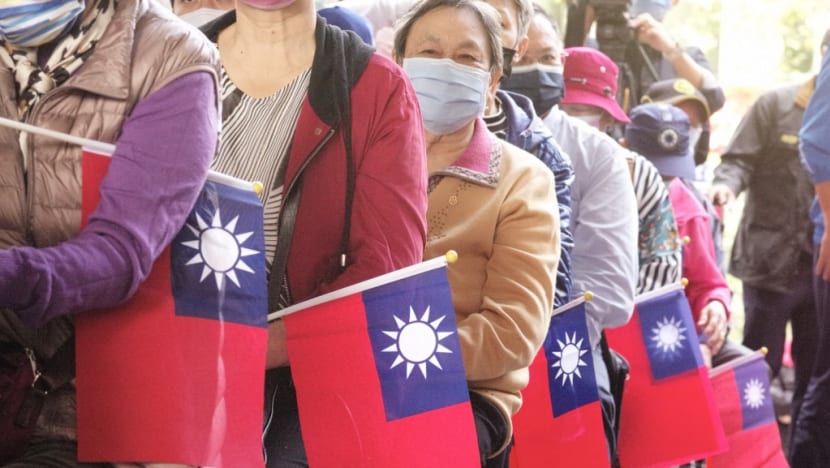

This audio is generated by an AI tool.
TAIPEI: It is about 9 a.m. in Ruifang, the seaside district close to 40 kilometres north-east of Taipei, and fishermen have just returned from the sea.
Their catch: Ribbon fish, caught off the coast of Taiwan, in the East China Sea. These fish can grow more than 2 metres and are a popular dish in Chinese cuisine.
They are mainly sent to mainland China, says Huang Chih-ming, who heads the Ruifang District Fishermen’s Association. “The catch today is pretty good,” he observes. “Almost 500 kilogrammes.”
But there is a cloud of uncertainty over their future.
It was only last March when China lifted a ban on ribbon fish from Taiwan — a ban that coincided with the then United States House Speaker Nancy Pelosi’s visit to Taipei months earlier, affecting products from over 100 Taiwanese exporters.
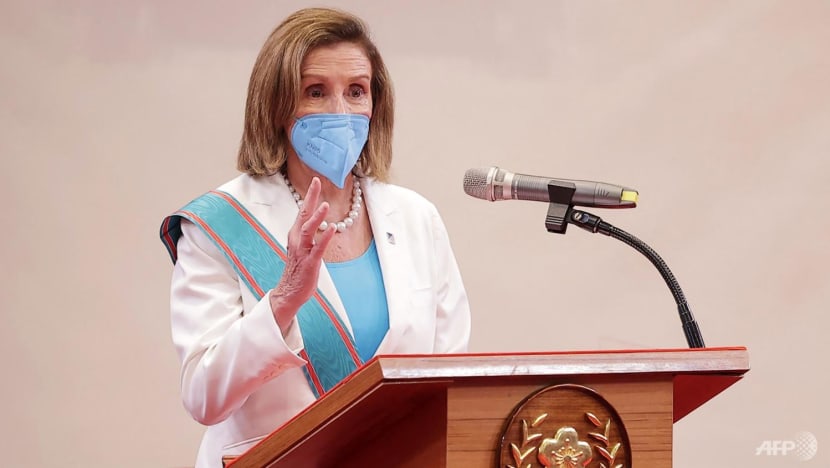
“There are fishermen starting to say, … today (the Chinese) ban ribbon fish, tomorrow they might ban groupers or pencil squids or everything else,” says Huang. “Then (the fishermen) will really have no clue about the future.”
That is why he thinks the fishing community “might be more inclined” toward the Kuomintang (KMT) in Taiwan’s Jan 13 presidential election, since the opposition party “communicates better with mainland China”.
“We don’t understand politics, but we want (to secure) our livelihood,” he adds.
For some voters, China’s assertiveness has helped them decide otherwise.
The ramp-up in China’s military flights around Taiwan, for example, has not gone unnoticed by aviation enthusiast Eric Chan. There were 380 incursions into Taiwan’s Air Defence Identification Zone in 2020 and nearly 1,630 incursions last year.
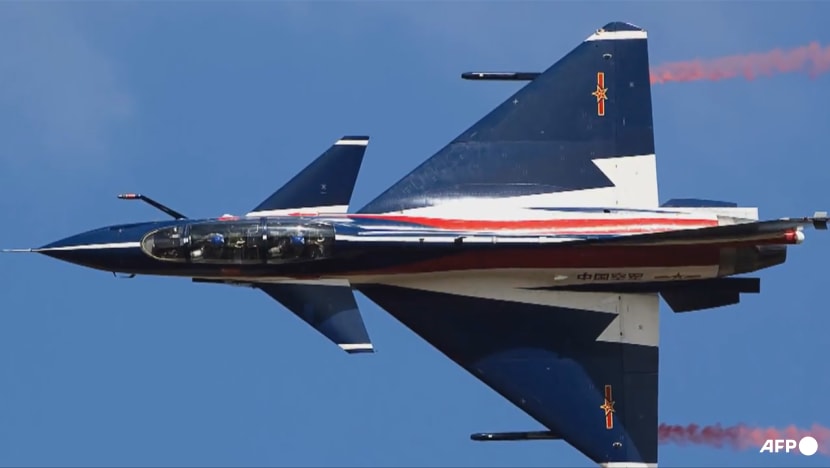
“The more the CCP (Chinese Communist Party) oppresses Taiwanese, the more united the people of Taiwan become. This, in turn, becomes an encouragement to a certain political party,” says Chan, 54.
He is referring to the incumbent Democratic Progressive Party (DPP), which has been in power since President Tsai Ing-wen took office in 2016. The party, a strong proponent of Taiwan nationalism and autonomy, will be represented by William Lai Ching-te, 64.
Opposing him is Hou Yu-ih, 66, from the KMT, which last held power between 2008 and 2016 and is regarded as the more Beijing-friendly party.
The third option, the Taiwan People’s Party (TPP), founded in 2019, is headed by former Taipei mayor Ko Wen-je, 64. For a while, the TPP had considered forming an alliance with the KMT, but the talks collapsed.
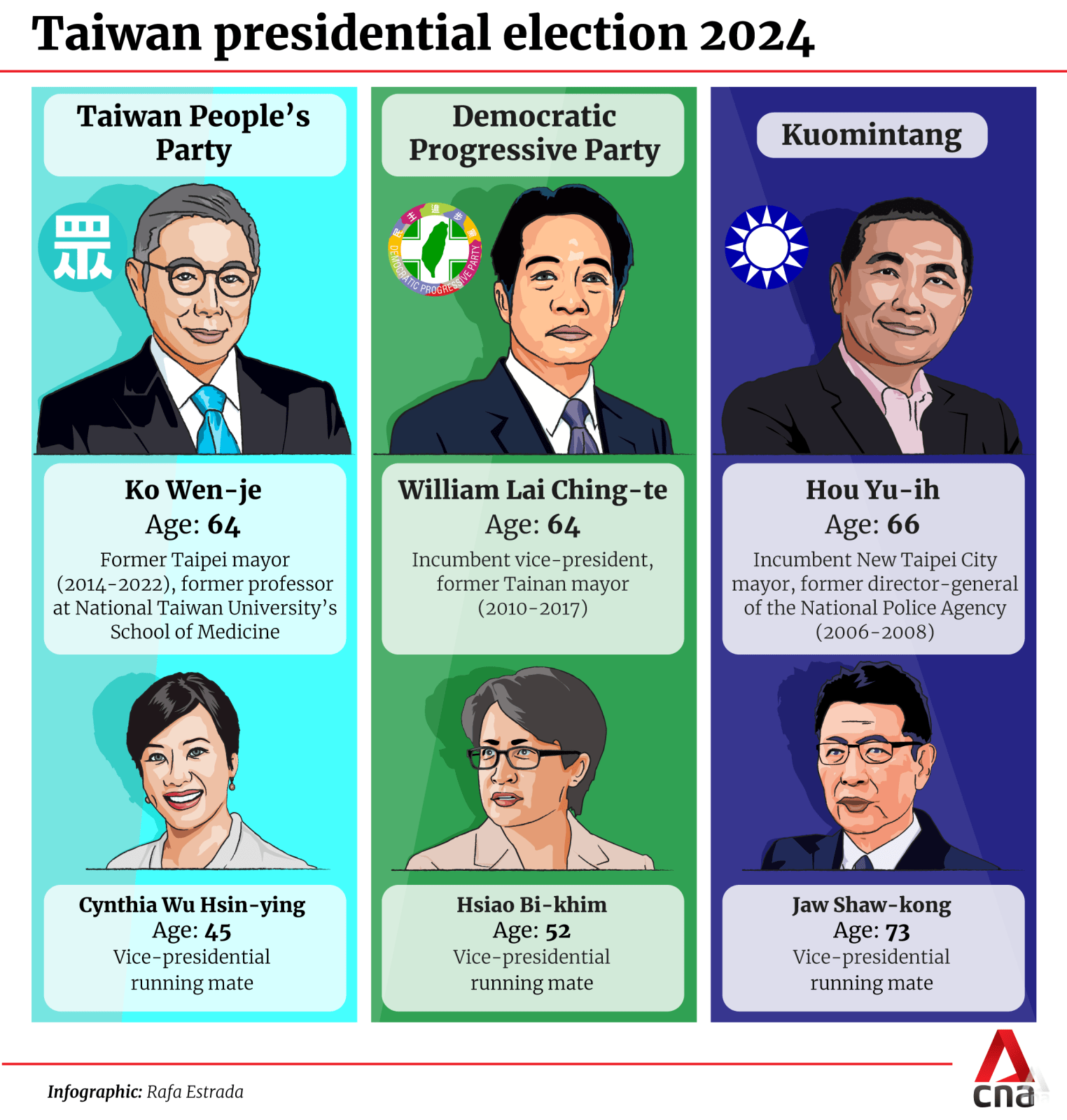
As the campaign period kicks into high gear, both China and the US may be looming large in voters’ minds, the programme Insight finds. And the question arises: Will the Taiwanese elections be about choosing between the two powers?
THEIR CAMPAIGN PLATFORMS
For their part, the candidates have made their respective party’s platform clear. Lai, who is Taiwan’s current vice-president, will continue Tsai’s “four commitments”, starting with a commitment to a “democratic constitutional order”, says the DPP’s international affairs director, Vincent Chao.
The second commitment is to ensure that Taiwan and China “aren’t subordinate to each other”. The third commitment is to “resist encroachments on our sovereignty, or annexation”.
“The fourth commitment is … that the future of the Republic of China will be decided by the 23 million people here on Taiwan,” says Chao, using the island’s formal name.
WATCH: How Taiwan’s 2024 election could change its relationship with China, US (46:25)
Because of the DPP’s position on cross-strait issues, the KMT says a vote for the incumbent is a vote for war.
“Knowing that, presidential candidate Hou has put forward the three-D strategy,” says political scientist Tso Chen-dong, a foreign affairs adviser to the KMT.
“First, deterrence: Taiwan must enhance its self-defence capabilities, … reducing the adversary’s willingness to invade and discouraging hasty warfare. Second, dialogue: The candidate advocates promoting cross-strait relations between the people of the Taiwan area and the mainland.
“Third, de-escalation: Continuous interaction in functional matters between the two sides will help de-escalate future risk.”
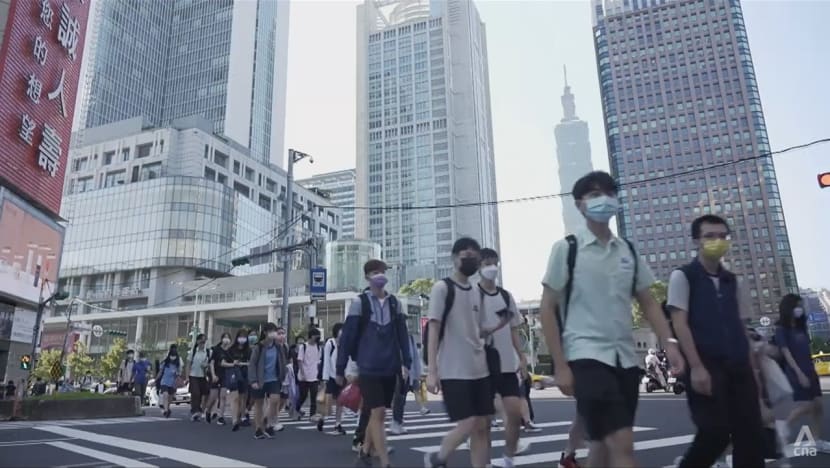
TPP secretary-general Chou Tai-chu, meanwhile, tells Insight his party “can’t just look plainly at the relationship between Taiwan and China — we also need to look at global relations”.
“Caught in the middle, we need to also consider America’s feelings when we’re handling the cross-strait relations,” he says. “As the US-China relationship evolves, Taiwan needs to find a balance in between.”
But this balance could become increasingly difficult to maintain, as Beijing still considers Taiwan a renegade province, and Chinese President Xi Jinping has not ruled out the use of force in pursuit of reunification.
It has always been a difficult balancing act, “regardless of who’s in power in Taiwan”, says J Michael Cole, a Taipei-based senior adviser on countering foreign authoritarian influence at the International Republican Institute.
“We’ve had the administrations that leaned closer towards China, and that was also difficult for them because ultimately, the only guarantor of Taiwan’s security is the US.”
From the DPP’s perspective, the US is “very important for Taiwan”, says Chao. “Our job is to … ensure that we have clear lines of communication with the US. We have a high degree of mutual trust (and) respect.”
The party’s second concern is to ensure that “interests and values” remain closely aligned. He cites democracy and freedom as “what’s guided the baseline of our values in past years”.
In terms of interests, we share a common interest in ensuring stability and peace here in the Taiwan Strait.”
VOTERS’ VIEWS ON THE U.S.
With US-China relations on shaky ground, however, some voters believe that Taipei’s growing ties with Washington are provocative. One of them is Feng Chien-san, whose family tree in Taiwan spans nine generations and whose forebears came from China’s Fujian province.
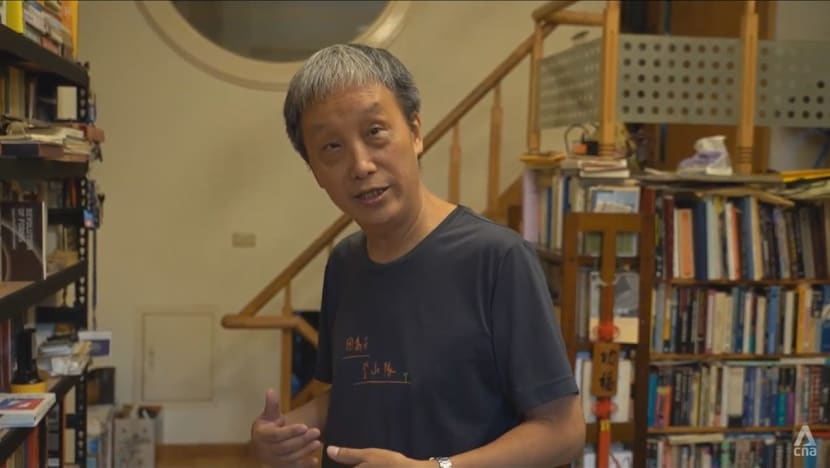
The 64-year-old communications professor at the National Chengchi University (NCCU) is a member of a group of retired and active academics who advocate for Taiwan’s autonomy while maintaining an equal distance from China and the US.
“Taiwan’s been strengthening its military and purchasing a lot of military equipment,” he notes. “This increases the hostility of cross-strait relations. We feel that this isn’t a good thing for Taiwan (and) for both sides and the world.
“The US is using Ukraine to weaken Russia — this is what Defence Secretary (Lloyd) Austin has said himself. If the US has such plans, we’ll be worried if they use Taiwan to weaken Beijing. … Why should we be your proxy?”
Most Taiwanese, however, view the US more positively than China — by a margin of nearly two to one, the Pew Research Centre found in 2020. Younger Taiwanese are especially likely to favour closer ties with Washington over Beijing.
WATCH: How do the Taiwanese view America? The US factor in Taiwan’s 2024 elections (6:35)
And young voters, who helped carry Tsai and the DPP to a landslide victory in 2020 — just after the pro-democracy protests in Chinese-ruled Hong Kong — could play a crucial role again in the coming elections.
Wilson Chen, a third-year student majoring in political science at the NCCU, was in high school when he saw what was happening across the strait. Aged 22 now, he will be voting for the first time.
“I feel China is governed by one person, and we’re unsure what his next steps are. The US is democratic — we’re certain that the elected leaders will follow the will of the electorate,” he says.
“But (with) China, you won’t know what their leader will decide to do tomorrow.”
If the KMT hopes to win, the party cannot ignore the youth bloc. Indeed, in September, Hou visited the US and during his visit called the country “Taiwan’s sincerest ally”.
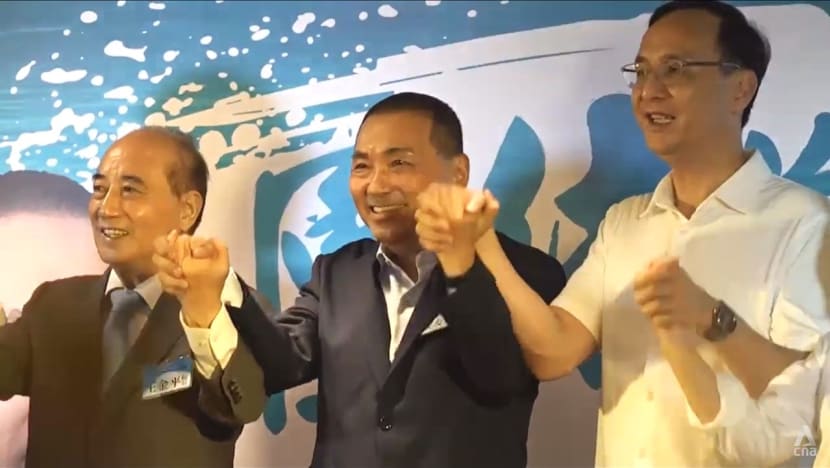
Visiting the US “seems like a norm” for Taiwan’s presidential candidates, observes Wang Yeh-lih, a political science professor at the National Taiwan University.
“It’s almost as if … to tell the Taiwan voters loudly that ‘the US acknowledges me and is supportive of me’, and at least (has no) objection,” he says.
The “original thinking behind the trip”, shares Tso, is to “convey the candidate’s personal stance and to illustrate Taiwan’s willingness to take on (our) responsibility in the Indo-Pacific region so as to enhance US-Taiwan relations”.
THE DOMESTIC ISSUES AT PLAY
Yet, there are voters who tire of the two-party system and the US-China dichotomy. This is where the TPP offers an alternative. Although the party is trailing in the polls, Ko is popular among those under the age of 40.
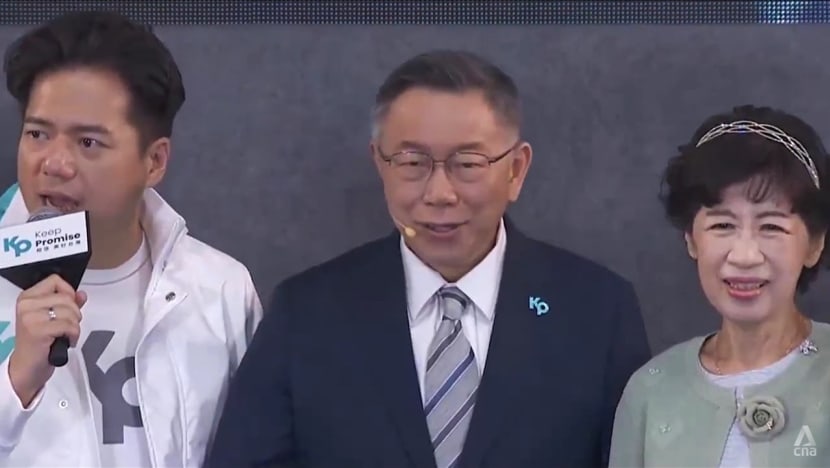
“This is because Ko is rather straightforward,” says Wang. “He’s very different from other political personalities, … from the usual stereotypes of a political personality.
“The main point is that many youngsters admire Ko’s style of doing things and personal charisma.”
For many voters too, it is domestic issues that weigh on their minds, especially with Taiwan’s sluggish economy. They are faced with an increase in the cost of living, for example.
While inflation in Taiwan is by global standards relatively low, the 2.95 per cent hike in prices in 2022 was the highest on the island since 2008. More recently, prices rose 3.05 per cent in October, a 15-month high.
“The government tried to manage … the price (of) public utilities (as) most of the public utility companies are state-owned,” notes Kristy Hsu, the director of the Taiwan Asean Studies Centre at the Chung-Hua Institution for Economic Research.
“We’ve frozen, for example, the electricity price, gasoline price, and … that helped stabilise the prices.”
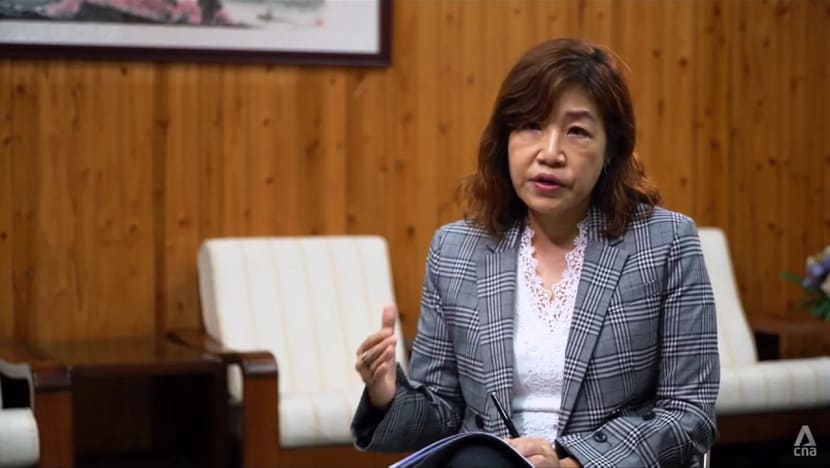
Housing, however, remains expensive. According to the government’s rent index in June, rents in Taiwan were the highest since records began in 1981.
Driven up in part by speculators, high property prices coupled with low wages are pricing young voters out of homes of their own.
Take, for example, fresh graduate Tim Huang from Taichung city, who just found a job in Taipei. “Food and rental costs here are high,” he says. “When your income isn’t so high, you only manage to save a little.
“Under such circumstances, it might not be quite possible to buy a property in Taipei city even after 10 or 20 years.”
The presidential candidates have put forth plans to raise wages and control prices. The DPP’s Chao cites several initiatives Lai launched previously, such as regulatory changes for start-ups, including relaxing some financial restrictions and building regulatory sandboxes.
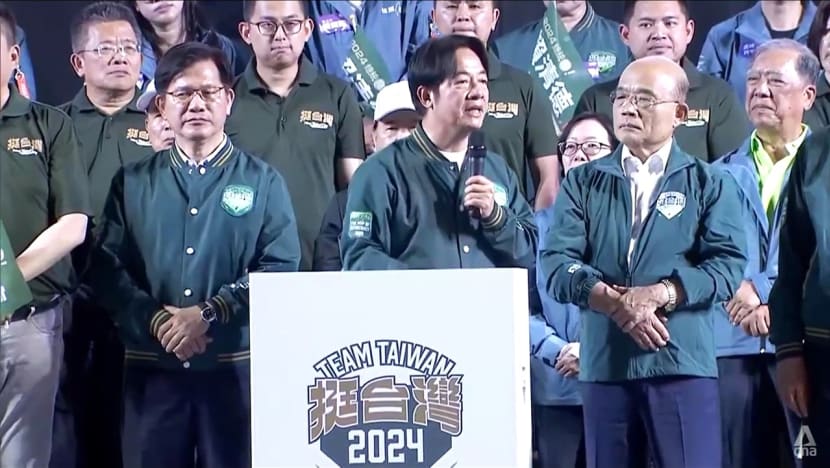
“The second part is to really ensure that we can bring some manufacturing back to Taiwan as well, particularly … high-end precision manufacturing,” says Chao.
The KMT’s Hou has proposed a “three-element policy”, the first of which is pay rises, cites Tso. “This has to be done through tax reduction — so the companies that can offer their workers a pay raise will receive tax reduction.
Second, workforce housing: All enterprises with land are encouraged to build workforce housing. Third, helping the disadvantaged (through) tax reduction.”
According to the TPP, both its rival parties must be held responsible for the issue of low salaries. “If Taiwan wants to improve her economy and living standards, you need to let every industry and field prosper,” says Chou.
“Our focus is all on the technological sectors now. … However, we also need to pay more attention to the traditional industries.”
NO ESCAPING GEOPOLITICAL TUG OF WAR?
In facing its economic challenges, however, Taiwan cannot escape the turbulence of global power rivalry. The recent ban on the island's agricultural and fishery products illustrates how China has flexed its economic muscle.
But this has had “limited impact” on Taiwan’s overall gross domestic product because agriculture accounts for a “very little share of our exports”, says Hsu.
Instead, the pressure could be coming from the US and its Chips Act, which restricts the sale of advanced chips built with underlying American technology to China. Some chips made by Taiwanese firms fall into that category.
“It’s something that US officials, trade officials and thinkers are also trying to navigate, … to reduce the impact on Taiwanese companies because it makes absolutely no sense for US sanctions to hurt their ally in Taiwan,” says Cole.
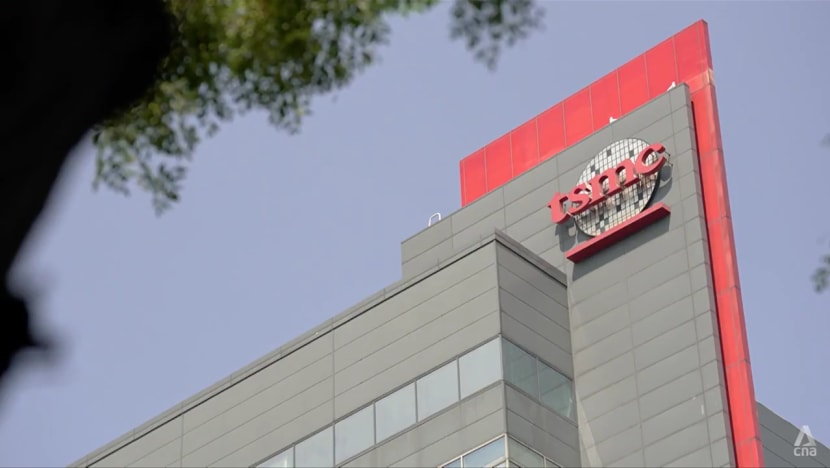
As a solution to the challenges on both sides, all three parties in Taiwan want to diversify the island’s trading relationships.
“If we have to face possible economic sanctions from mainland China, we’ll have to increase our competitiveness,” says the TPP’s Chou.
When our products are competitive, even if we don’t sell our products over there, we can still sell (them) to other regions.”
One of those regions with investment opportunities is South-east Asia, says the DPP’s Chao. “We need to create incentives for businesses to look elsewhere.
“But we need … trade incentives. And this is why the Tsai administration, over the past eight years, has had a robust focus on bridging new trade deals with important trading partners.”
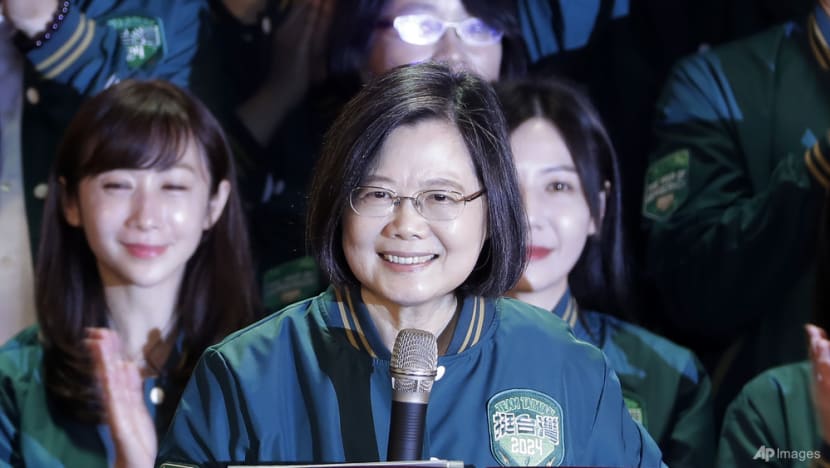
Still, China and the US are Taiwan’s biggest trading partners. And trade with the US, the island’s second-largest export market, remains on an upward trajectory.
Hence the KMT advocates continuing the work on the US-Taiwan Initiative on 21st Century Trade and negotiating a Taiwan-US tax agreement, says Tso.
As the presidential candidates continue to spar, a survey released on Dec 30 by pollster My Formosa showed 40 per cent of those polled were in favour of Lai, 28.5 per cent supported Hou and 18.9 per backed Ko.
Beijing and Washington are not the only ones watching closely. “The rest of the world is certainly paying very close attention to any development, anything in Taiwan that could result in China deciding to ramp up the pressure,” says Cole.
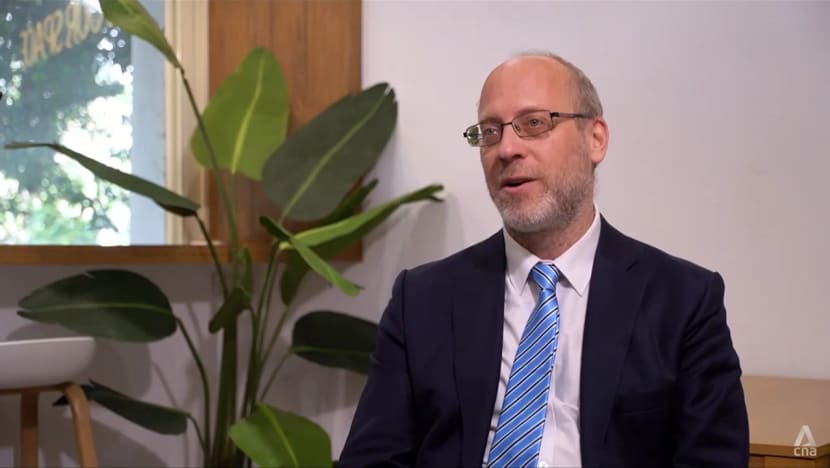
At stake is not only the fate of cross-strait relations but also regional stability.
“The degree to which Taiwan is able to maintain its stability in its area … is useful and important for the region,” says National University of Singapore political scientist Chong Ja Ian.
“Taiwan sits astride major sea lanes, major air routes and also submarine cables, so any disruption … will unsettle the links between North-east and South-east Asia.”
If Lai were to win the election, the likely outcome is “four more years of greater tensions” in the Taiwan Strait, says Nanyang Technological University associate professor of social sciences Hoo Tiang Boon.
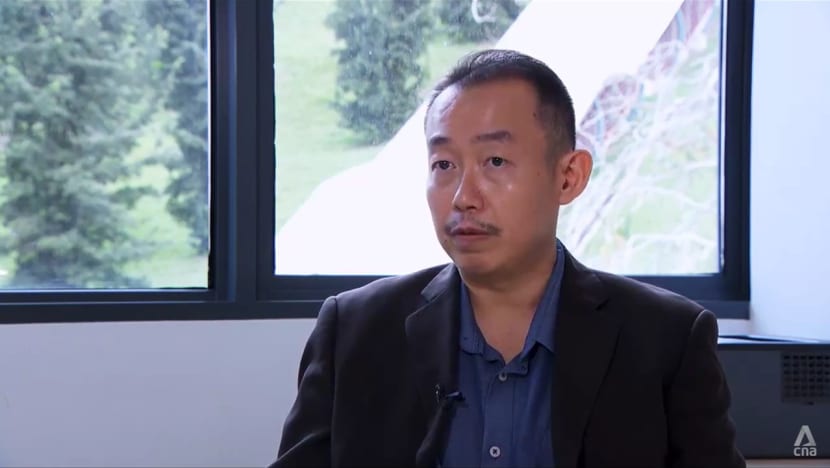
If either Hou or Ko were to win, “then the conventional wisdom is that this would lead to a lowering of tensions because those two candidates would say things that’d be more pleasing to the ears of China”, he adds.
For a few voters, the burden of being caught between titans might be weighing heavily on them.
“No matter what decisions Taiwan makes, we have to consider how the US and China think. To be honest, I’ve (grown) very weary of this,” says Huang, an undecided voter.
“It’s almost as if … we must observe their next steps to get feedback before making our next decisions. In the long term, this isn’t a good position to be in.”
Watch this episode of Insight here. The programme airs on Thursdays at 9pm.






















